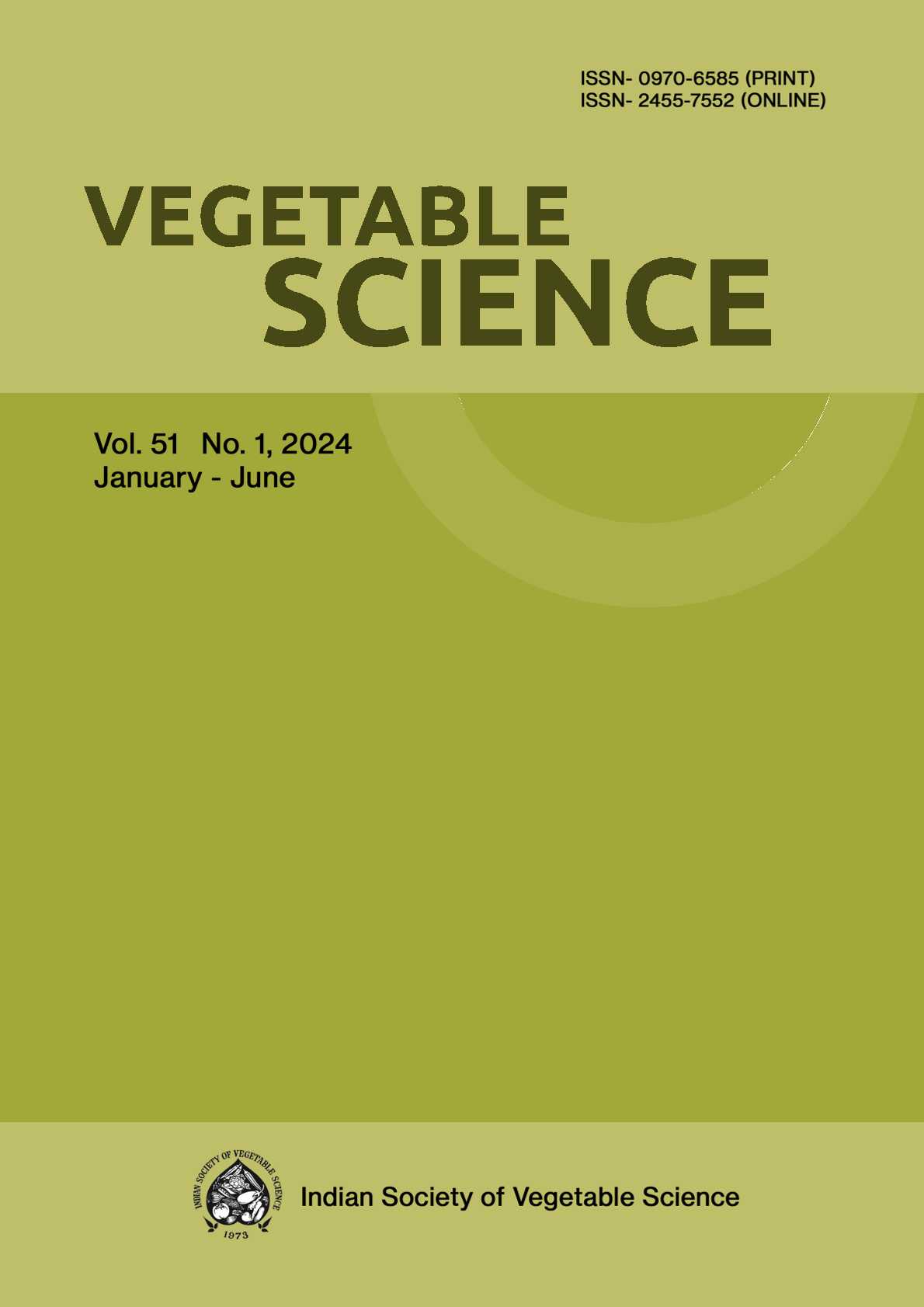Influence of organic nutrient sources on growth and seed quality of garden pea
DOI:
https://doi.org/10.61180/vegsci.2023.v50.i2.07Keywords:
Economics, FYM, Jeevamrit, Pisum sativum L., Rhizobium.Abstract
In the post-era of the green revolution, the productivity of crops has been increased by massive application of agro-chemicals that has disturbed harmony existing in the ecosystem. As a legume crop, garden pea is gaining attention towards organic farming systems. Seeds produced organically are better adaptable to organic growing conditions. A field experiment was laid out with three replications, comprising of twelve treatment combinations of different levels of FYM and jeevamrit during Rabi season of 2020-21. Seeds of cv. ‘Punjab-89’ were sown at a spacing of 60 cm × 7.5 cm after inoculation with Rhizobium and PSB. FYM was applied at the time of sowing. Jeevamrit was applied treatment-wise as soil drenching at an interval of 15 days starting from 30 days after sowing. Combined application of FYM @ 15 t ha-1 and jeevamrit @ 10% drenching resulted in maximum plant height (80.63 cm), pod length (8.84 cm), number of pods per plant (21.33), number of seeds per pod (8.07), gross seed yield (12.56 q ha-1), graded seed yield (11.31 q ha-1), speed of germination (8.68 days), 100 seed weight (17.51 g), seed germination (88.33%), minimum powdery mildew severity (25.33%) and lowest EC of seed (15.26 μS cm-1) along with highest net returns (₹ 195567.5 ha-1).
Downloads
Published
Issue
Section
License

This work is licensed under a Creative Commons Attribution-NonCommercial-NoDerivatives 4.0 International License.






